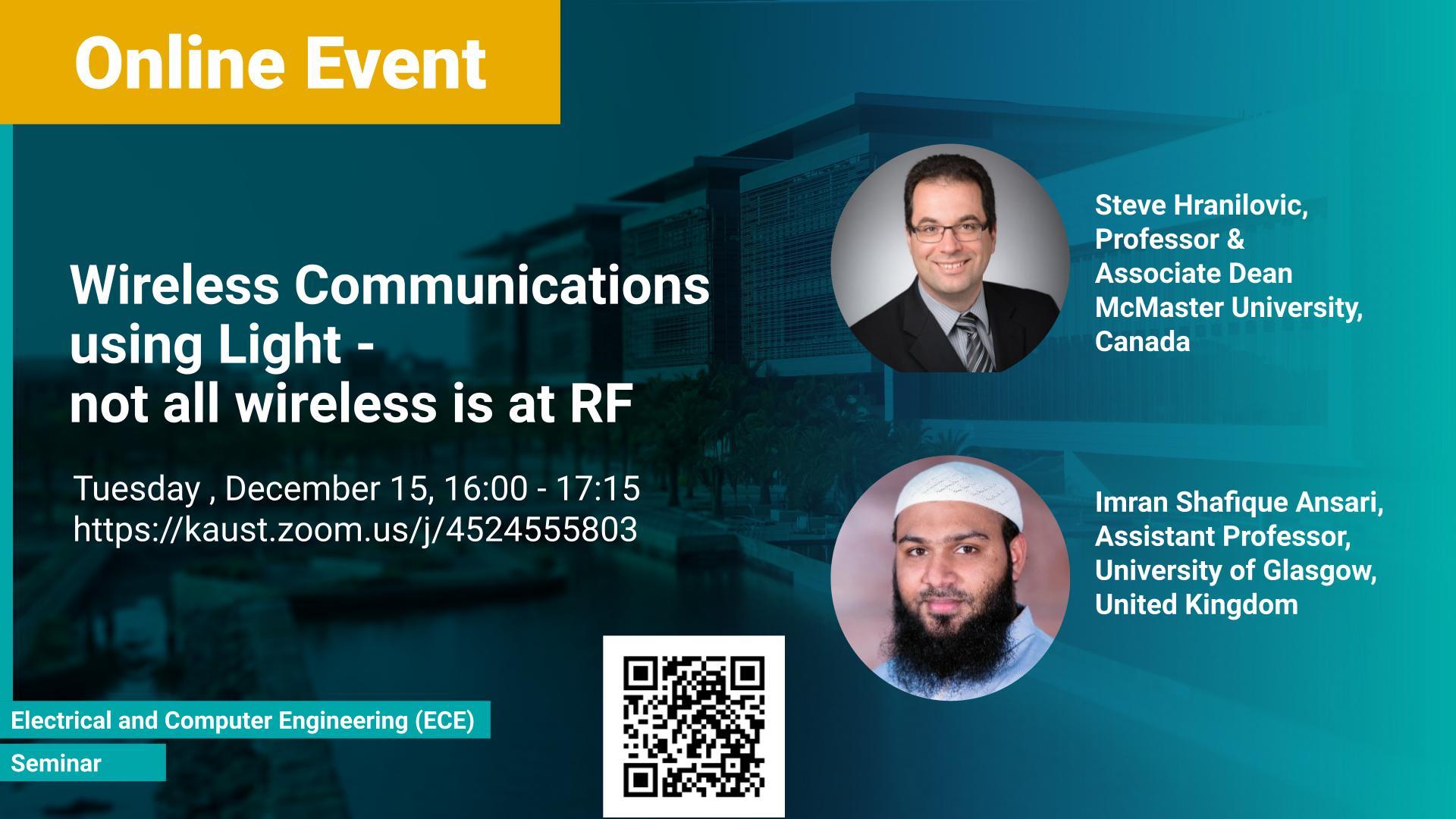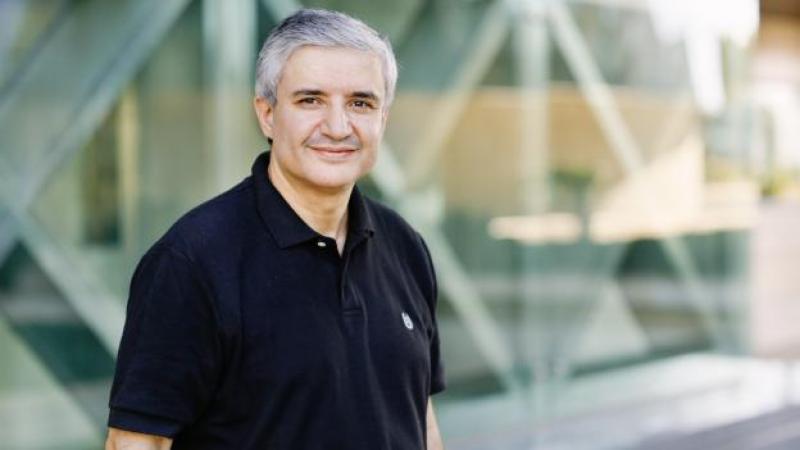Prof. Hranilovic’s Abstract:
Due to the increasing scarcity of RF spectrum and growing interference due to multiple users, deploying next generation high-speed wireless networks is becoming increasingly difficult. The use of unlicensed optical bands for wireless communications has been heralded as an exciting development for future broadband access for indoor, underwater and space communication links.
This talk presents a broad overview of the work of the Free-space Optical Communication Algorithms Laboratory (FOCAL) at McMaster University in Hamilton, Canada in developing novel optical wireless systems. The main thrusts of the group will be highlighted by emphasizing several recent contributions. Developments in the signaling design for visible light communication (VLC) systems will be presented along with several prototype VLC communication systems. Several approaches to indoor positioning using illumination devices and simple smartphone-based receivers will be presented. Some perspectives on our work in algorithms and experiments in long range free-space optical and space-based laser communications will also be highlighted. Finally, a vision for optical wireless technologies will be presented along with our ongoing research directions.
Prof. Hranilovic’s Biography:
Steve Hranilovic received the B.A.Sc. Degree with honours in electrical engineering from the University of Waterloo, Canada in 1997 and M.A.Sc. And Ph.D. degrees in electrical engineering from the University of Toronto, Canada in 1999 and 2003 respectively.
He is a Professor in the Department of Electrical and Computer Engineering, McMaster University (Hamilton, Ontario, Canada) and currently serves as the Associate Dean, Academic. During 2010-2011 he spent his research leave as Senior Member, Technical Staff in Advanced Technology for Research in Motion, Waterloo, Canada. His research group at McMaster University develops information theory, signalling design and experimental prototypes for optical wireless systems operating in the infrared, visible and ultraviolet bands.
In 2016 the title of University Scholar was conferred upon him by McMaster University. He currently serves as Vice-Chair of the Transmission, Access and Optical Systems technical committee of the IEEE Communications Society and has served as an Associate Editor for the Journal of Optical Communications and Networking and as an Editor for the IEEE Transactions on Communications in the area of Optical Wireless Communications.
Dr. Ansari’s Abstract:
As we embark on a journey towards defining the next generation of cellular networks, we find ourselves amidst the hunger of spectrally efficient and secure systems. With an extensive record of contributions varying from stand-alone free-space optical (FSO) links to mixed as well as hybrid radio-frequency (RF) and FSO systems, we have learned a ton and fairly experienced the benefits that piggy-back FSO technology. In this presentation, we will further explore these in various directions such as enhancing mixed RF-FSO systems, advancements in underwater FSO performance, minimizing wiretap activities in mixed FSO-RF systems, and benefits of using reflective surfaces within mixed FSO-RF systems, among others.
Dr. Ansari’s Biography:
Imran Shafique Ansari (S’ 07-M' 15) received the B.Sc. degree in Computer Engineering from King Fahd University of Petroleum and Minerals (KFUPM) in 2009 (with First Honors) and M.Sc. and PhD degrees from King Abdullah University of Science and Technology (KAUST) in 2010 and 2015, respectively. Currently, since August 2018, he is a Lecturer (Assistant Professor) with University of Glasgow, Glasgow, UK.
He has been affiliated with IEEE and IET since 2007 and has served in various capacities. He is serving on the IEEE Communication Society Young Professionals (ComSoc YP) Board since April 2016. He is part of the IEEE 5G Tech Focus Publications Editorial Board since Feb. 2017. He is serving as the Vice-Chair of the IET Young Professionals Communities Committee (YPCC) from Oct. 2018-Sep. 2019. He is serving on the IET Satellites Technical Professional Network (TPN) from Mar. 2016-Sep. 2019. He has served on the IET CC-EMEA (Communities Committee-Europe, Middle-East and Africa) for two complete terms from Oct. 2015-Sep. 2018 and Oct. 2010-Sep. 2013. He is an active reviewer for various IEEE Transactions and various other journals. He has served as a TPC for various IEEE conferences. He is a recipient of appreciation for an exemplary reviewer for IEEE Transaction on Communications (TCOM) in 2018 and 2016, a recipient of appreciation for an exemplary reviewer for IEEE Wireless Communications Letters (WCL) in 2017 and 2014, a recipient of TAMUQ ECEN Research Excellence Award 2016, 2017, a recipient of recognized reviewer certificate by Elsevier Optics Communications in 2015, a recipient of recognized reviewer certificate by OSA Publishing in 2014, a recipient of post-doctoral research award (PDRA) (first cycle) with QNRF in 2014, a recipient of KAUST academic excellence award (AEA) in 2014, and a recipient of IEEE Richard E. Merwin student scholarship award in Jul. 2013.
Dr. Ansari has authored/co-authored 70+ journal and conference publications. He has co-organized the GRASNET'2016, 2017, 2018 workshops in conjunction with IEEE WCNC'2016, 2017 and IEEE Globecom 2018. His current research interests include free-space optics (FSO), channel modeling/signal propagation issues, relay/multihop communications, physical layer secrecy issues, full duplex systems, and secure D2D applications for 5G+ systems, among others.

